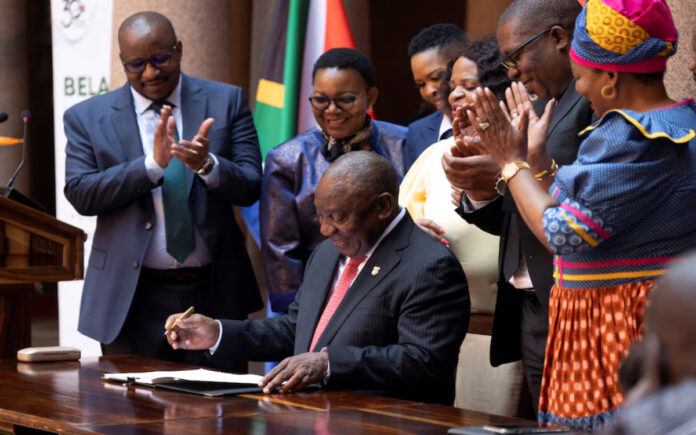Pretoria: South Africa’s President Cyril Ramaphosa defended the resilience of his unity government on Friday, following a dispute over a contentious education bill that has revealed underlying tensions between his African National Congress (ANC) and its primary coalition partner, the Democratic Alliance (DA).
Ramaphosa addressed the media shortly after signing the bill into law, a move that has provoked backlash from the DA. The debate centers on the bill’s provisions related to the integration of schools teaching in Afrikaans, a language associated with South Africa’s apartheid past.
“We come from different histories … and are driven by different ideological outlooks but … the government of national unity is durable,” Ramaphosa stated, addressing concerns about the coalition’s stability amidst the disagreements. “I have confidence in the durability of the GNU because anything else is just too ghastly to contemplate,” he added.
The controversial education bill grants the relevant department authority to approve language policies for school boards, aiming to prevent discrimination. The ANC argues that some students are being excluded from schools based on their language, which it views as a proxy for racial exclusion—a reference to Afrikaans, historically used by South Africa’s white minority rulers under apartheid.
In contrast, the DA contends that the bill infringes on South Africans’ right to receive education in their native languages. The party, which struggles with its image as a party of the white minority (many of whom speak Afrikaans as their first language), has pledged to challenge the bill in court. Earlier, the DA criticized the bill as undermining the principle of consensus-building central to the unity government and posing a threat to the coalition.
Also Read | Prague Braces for Major Flood Risk as Torrential Rains Batter Central Europe
“Primarily it’s about the use of Afrikaans as a medium of instruction, which is seen as an attempt to exclude people that are not able to speak Afrikaans,” noted Andre Duvenhage, a politics professor at North-West University. “In a way the … legislation is an attempt at opening up these schools for all people,” he told Reuters, according to the report.
Also Read | WHO Approves Bavarian Nordic’s Mpox Vaccine and Launches Access Scheme
The Basic Education Laws Amendment (BELA) Bill also mandates one year of pre-primary education, reinforces a ban on corporal punishment in schools, and regulates home-schooling. Ramaphosa indicated that he would allow for three months of consultation on the most contentious sections of the bill, with implementation set to proceed if a resolution is not reached.



